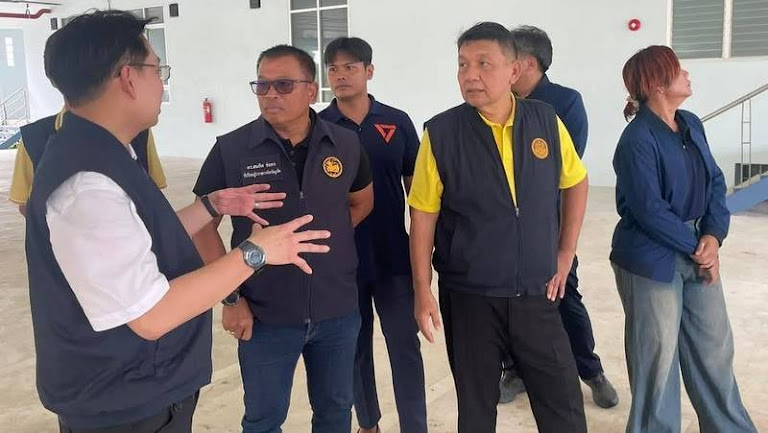Phuket Dorm Collapse Concerns: Chinese Oversight Questioned
Delayed completion and a prior building collapse raise concerns about the Chinese contractor’s safety standards and oversight in Thailand.

Phuket officials inspected a newly completed student dormitory at Phuket Rajabhat University on April 3rd, amid growing scrutiny of Chinese construction projects in the region. The seven-story dormitory, built by China Railway Number 10 (Thailand) Ltd., a subsidiary of the state-owned China Railway Group, faced significant delays, finishing almost two years behind its original 2022 completion date. This inspection followed a major earthquake in Myanmar that shook buildings across the region, including Bangkok, raising concerns about structural integrity, particularly in projects undertaken by this contractor. As reported by this link, the same company constructed a 33-story State Audit Office high-rise in Bangkok that collapsed following the quake.
The dormitory project, built with a budget of ฿132.146 million, caused concern due to its extended timeline. Ditthaphon Kaewmunichoke, the supervising engineer, attributed the delays to the COVID-19 pandemic, explaining that the company was fined for exceeding the contract deadline. He acknowledged potential construction issues but maintained that materials, including steel and cement, underwent rigorous testing to meet standards. The inspection itself faced challenges. Initially, Department of Public Works and Town & Country Planning (DPT) officials were denied entry, requiring permission from university officials. Once inside, they were reportedly asked not to photograph the inspection. However, their preliminary assessment revealed no visible cracks or damage, and the dormitory remains operational.
This incident highlights increasing concerns regarding the quality and oversight of Chinese-led construction projects in Thailand. Cracks were also found in the Phuket Provincial Electricity Authority (PEA) office, another project under construction by China Railway Number 10 (Thailand) Ltd. Further intensifying scrutiny, the company is involved in a ฿343 million housing project, and its shareholdings are under investigation by the Department of Special Investigation (DSI) for suspected involvement of Thai nominees, according to the Bangkok Post.
“It is critical to examine how government funds are being used and whether the materials and structural integrity of these projects meet safety regulations.” — Phuket MP Chalermpong Saengdee.
The situation raises several key questions:
- What are the long-term implications of the construction delays and reported issues with other projects by the same contractor? The delays impacted student housing access and raise questions about project management and potential cost overruns. Issues with other projects suggest a pattern requiring thorough investigation to ensure future building safety and public trust.
- What are the specific findings of the Department of Special Investigation’s probe into China Railway Number 10 (Thailand) Ltd? The investigation’s outcome will be crucial in determining wrongdoing and shaping future regulations for foreign construction companies in Thailand.
- What steps will be taken to ensure greater transparency and accountability in public construction projects? Increased oversight, stricter adherence to building codes, and more rigorous material testing are necessary to address public concerns and prevent similar incidents.
The ongoing investigation into the contractor’s practices, coupled with the recent earthquake and subsequent scrutiny of building integrity, signals a potential turning point in how Thailand manages large-scale construction projects, especially those involving foreign companies. The demand for greater transparency and accountability could lead to stricter regulations and closer monitoring of construction practices, impacting involved companies and the country’s urban development landscape.









